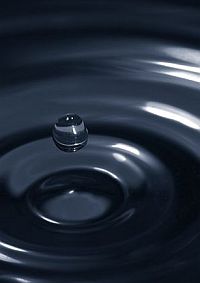Scientists at East Malling Research (EMR) - recognised as world experts on water management - have found a way to significantly reduce the amount of water used to grow potatoes commercially, after transferring the knowledge from early work with strawberries.
Currently 75 million tonnes of water, which is a quarter of all the water used each year by the agricultural industries in England and Wales, is applied to potatoes. The intensive irrigation applied by growers helps to reduce the incidence of common scab on the tubers’ skin and to increase yields as the tubers form four to six weeks after planting.
The scale of the water consumption is enormous, accounting for 56% of all the irrigation water used in England and Wales and equivalent to filling 30,000 Olympic-sized swimming pools each year.
Thanks to funding from Defra (Department for Environment, Farming &Rural Affairs), the team at EMR, based in Kent, has now shown that it is possible to produce one tonne of Grade 1 potatoes using just 23 tonnes of water – significantly less than the current 42-60 tonnes industry average for the same yield.
And there’s more good news for potato growers as the EMR team, led by Dr Mark Else, also increased the yield from the industry standard range of 45-50 tonnes per hectare to 78 tonnes per hectare.
Dr Else said: "We have just lifted the 2010 crop and are confident that we will have improved on last year’s yields, and importantly used less water and fertigation (fertilizer delivered via irrigation) while maintaining the yields and quality of the potatoes produced.
"Given that our trial took place on less than one hectare, we recognise that it will be difficult challenging to replicate these results exactly on a commercial scale. However, we have achieved this with our work on strawberry and we believe that the potato se trials, now in their second year, demonstrate that with water scheduling and drip fertigation it is possible to dramatically reduce the amount of water and chemicals applied to potatoes commercially. As well as saving money for the growers, our trials show they can increase revenues thanks to a major increase in yields and maintenance of quality." The team is confident that by the end of the three-year trial in 2011, EMR will have produced a set of guidelines and techniques to help growers using drip irrigation to know when and how much water to apply.
The team is confident that by the end of the three-year trial in 2011, EMR will have produced a set of guidelines and techniques to help growers using drip irrigation to know when and how much water to apply.
The guidelines will take into account the actual rainfall and the optimum soil moisture content to deliver the quality and quantity of potatoes expected by growers and supermarkets.
Dr Else added: "There will be a capital investment associated with the techniques, but with good increased yields, maintained quality and lower costs associated with water and chemicals, we believe there is a commercial advantage for UK growers."
EMR’s work on potatoes extends the scientists’ previous success in dramatically reducing water consumption in commercial strawberry production. The water management techniques developed for strawberries have now importantly been transferred to potatoes.
Chris Atkinson, Head of Science at EMR, said: “This experiment has major commercial implications for many potato growers, especially those farming in the south and east of the country which, due to less rainfall, are more dependent upon irrigation.
UK researchers show potatoes can be grown with much less water

¿Te gustaría recibir noticias como esta por correo electrónico? ¡Únete y suscríbete!
Únete a nuestra Telegrama ¡Canal para actualizaciones periódicas!
Contenido Patrocinado
Contenido Patrocinado
Contenido Patrocinado
Contenido Patrocinado
Contenido Patrocinado








